This vase-shaped evergreen shrub is sure to become a favorite in your winter garden. Whorls of stiff, holly-like foliage are decorated with fragrant yellow flowers, each cluster resembling a golden shuttlecock. 'Charity' Oregon grape makes a great architectural specimen in a border or container.
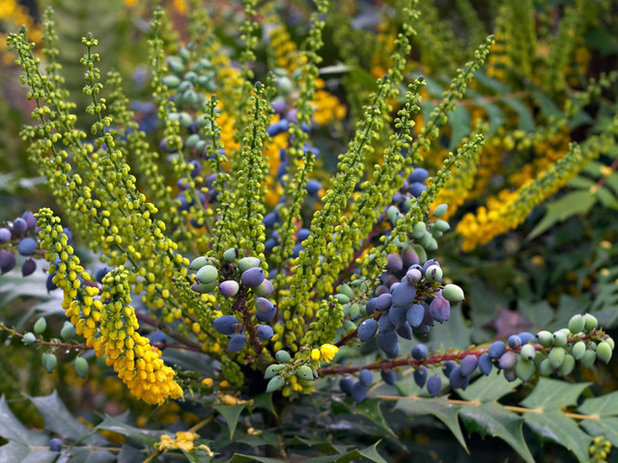
Monrovia
Botanical name: Mahonia x
media 'Charity'
Common name: 'Charity' Oregon grape
USDA zones: 7 to 9
(find your zone)
Water requirement: Drought tolerant once established but needs more water in a sunny spot
Light requirement: Full sun to dappled shade
Mature size: 10 feet tall and 5 feet wide
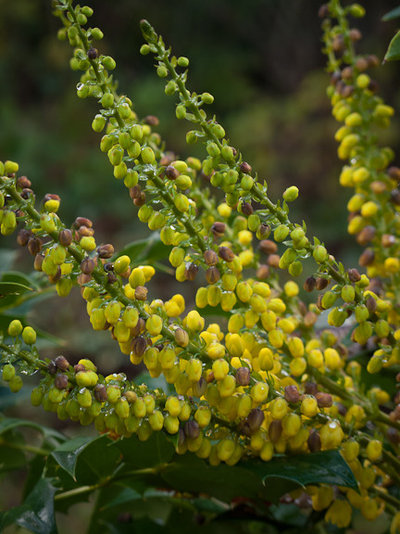
Le jardinet
Benefits and tolerances: Hummingbird favorite; edible berries (try Oregon grape jelly!); deer resistant; tolerates both sandy soil and clay, although it prefers well-drained soil
Seasonal interest: Year-round
When to plant: Spring or fall
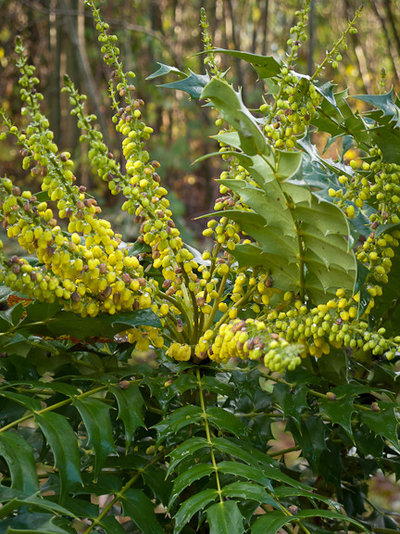
Le jardinet
Distinguishing traits: Stiff, holly-like evergreen foliage; fragrant bright yellow flowers bloom in winter; purple berries persist for many months; bronze new growth
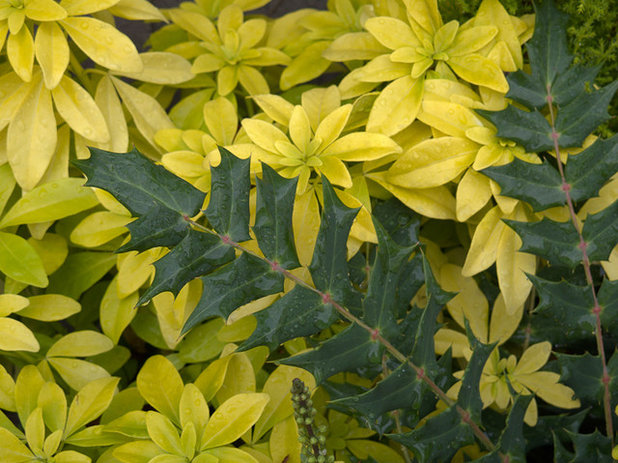
Personal Garden Coach
How to use it. Oregon grape looks at home in the dappled light of a woodland or as a focal point in a narrow side garden. For a stunning combination, add
'Sundance' Mexican orange blossom (
Choisya ternata 'Sundance'), as shown here — when the Oregon grape blooms, its yellow flowers will echo the sunny foliage of its companion.
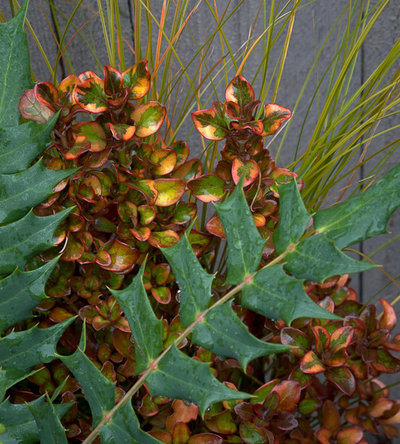
Personal Garden Coach
'Charity' also makes a great centerpiece for a year-round shady container, especially when partnered with finely textured shrubs and grasses. Here the subtle russet tones within the leaf veins are enhanced by the partnership with the glossy, smaller leaves of a
mirror plant (Coprosma repens) and the finely textured
orange hair sedge (Carex testacea).
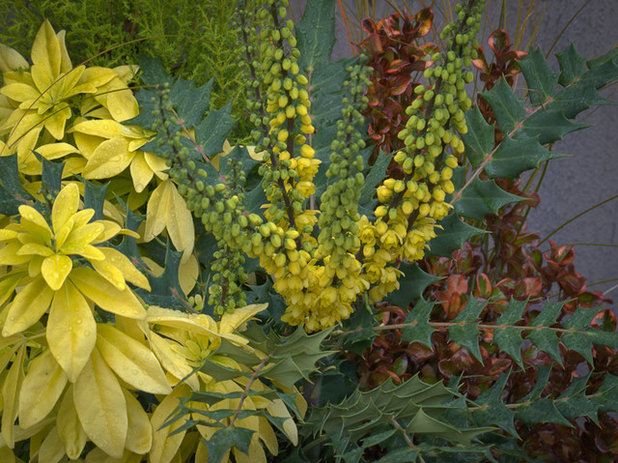
Personal Garden Coach
Planting notes:• Loosen the roots before planting in a hole twice as wide but the same depth as the root ball.
• Water it well until it's established.
• No fertilizer is necessary, although a sprinkling of bonemeal will promote root growth.
• When the shrub is young, cutting off the growing tips in spring will encourage bushiness.
• No pruning is necessary when it's older.





